Introduction
Welcome to the world of marketing for healthcare trends, where the game has changed and the stakes are higher than ever!
In 2024, it's not just about sending out a one-size-fits-all message; it's about weaving a seamless tapestry of patient experiences that flow smoothly across every channel.
The latest healthcare marketing trends aren't just about reaching more people; they're about connecting in smarter, more personalized ways.
From AI-driven campaigns to patient-centric strategies, these innovations are shaping the future of healthcare marketing trends. If you want to stay competitive, understanding and leveraging these healthcare marketing trends is key.
As per Mckinsey & Company, Telehealth adoption has soared, with usage growing by 38% since the pandemic, as consumers increasingly turn to digital health solutions.
Think of healthcare marketing trends as the Swiss Army knife of healthcare strategies—versatile, handy, and ready to tackle any challenge.
Whether patients are scrolling through social media during their morning commute or reading emails while sipping coffee, they expect a consistent and engaging experience. It’s a brave new world where healthcare providers must don their marketing hats and juggle multiple platforms like seasoned pros.
In this piece, we will look at the top healthcare marketing trends in 2024 and understand their importance. So, buckle up as we deep dive into the realm of healthcare marketing trends and take a closer look at them.
Let’s turn the spotlight on patient journeys and see how to shine!
Top Healthcare Marketing Trends in 2024
Following are the top healthcare marketing trends today. Each of them has been discussed in detail with real-world examples as follows
Personalized Patient Experience
In 2024, personalized patient experiences are more than a trend—they’re becoming the cornerstone of successful healthcare marketing.
Patients today expect care that goes beyond one-size-fits-all treatments, seeking healthcare providers that offer tailored services aligned with their specific needs.
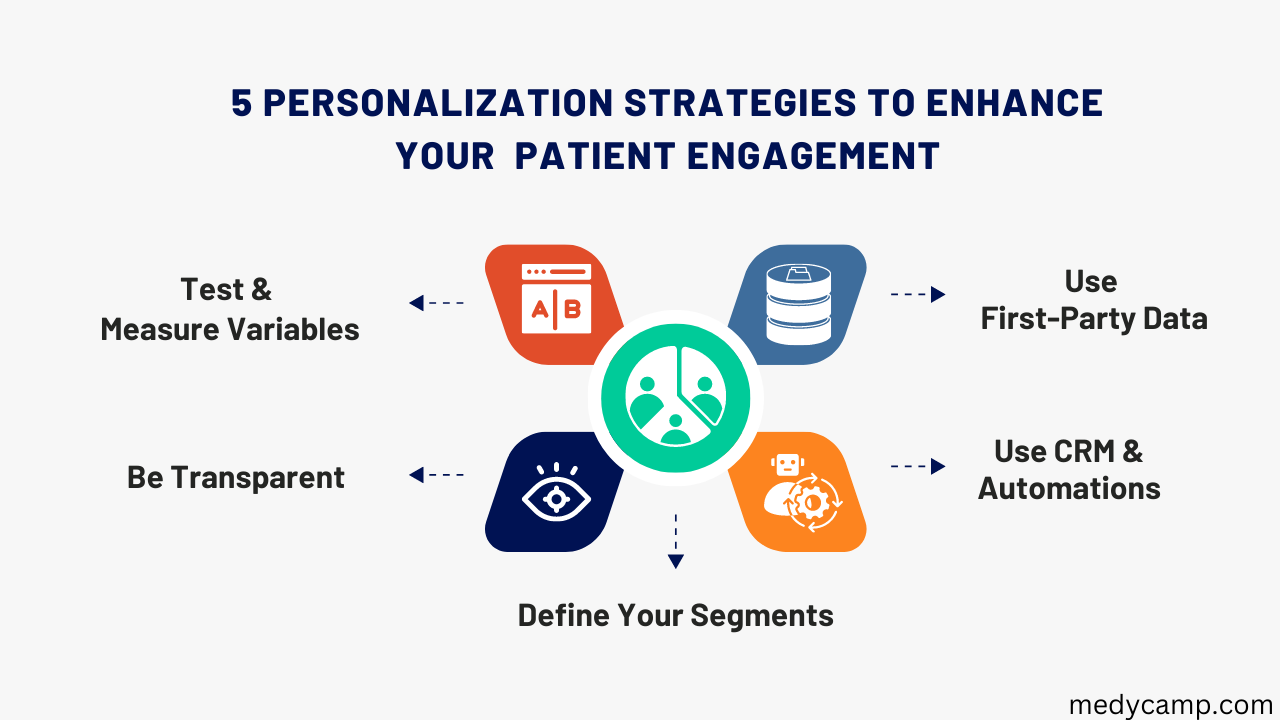
By using data analytics and AI, healthcare organizations can personalize everything from appointment reminders to treatment recommendations.
One standout example is Cleveland Clinic, which uses personalized messaging to engage patients and offer relevant healthcare content based on their medical history and preferences.
By leveraging these tailored interactions, the clinic enhances patient satisfaction, reduces churn, and builds stronger long-term relationships.
Another real-world example is Mount Sinai Health System in New York, where AI-powered tools help create individualized care plans by predicting patient needs and suggesting proactive treatments.
Why Personalized Patient Experience Matters in Healthcare marketing trends?
In 2024, personalized care is here to stay, revolutionizing how healthcare providers connect with their audience.
- Meets rising patient expectations for tailored care, increasing satisfaction.
- Strengthens differentiation in a competitive healthcare marketing trends market.
- Improves patient retention by fostering stronger, more personalized relationships.
- Leverages data to create customized treatments, leading to better outcomes.
- Enhances patient loyalty through meaningful, proactive communication.
Ethical Marketing Practices

As patients become more informed and discerning, ethical marketing practices have emerged as a critical healthcare marketing trends in 2024.
In an era where misinformation can spread rapidly, healthcare organizations must prioritize transparency, accuracy, and integrity in their marketing strategies.
Ethical marketing not only builds trust but also strengthens the patient-provider relationship, ensuring long-term engagement.
A great example is Johns Hopkins Medicine, which emphasizes ethical marketing by providing evidence-based content across all digital platforms.
Their patient education materials, blog posts, and advertisements strictly adhere to medical guidelines and are aimed at improving patient understanding, rather than sensationalizing treatments.
Why do Ethical Marketing Practices matter to healthcare marketing trends?
Ethical practices in healthcare marketing trends are important because
- Builds patient trust, leading to stronger long-term relationships.
- Prevents misinformation by providing accurate, transparent healthcare information.
- Strengthens brand reputation, positioning healthcare organizations as reliable and patient-focused.
- Improves patient engagement, as people are more likely to interact with trustworthy sources.
- Meets regulatory standards, avoiding legal or compliance issues related to false advertising.
Chatbot For Healthcare Revolutionizing Patient Engagement
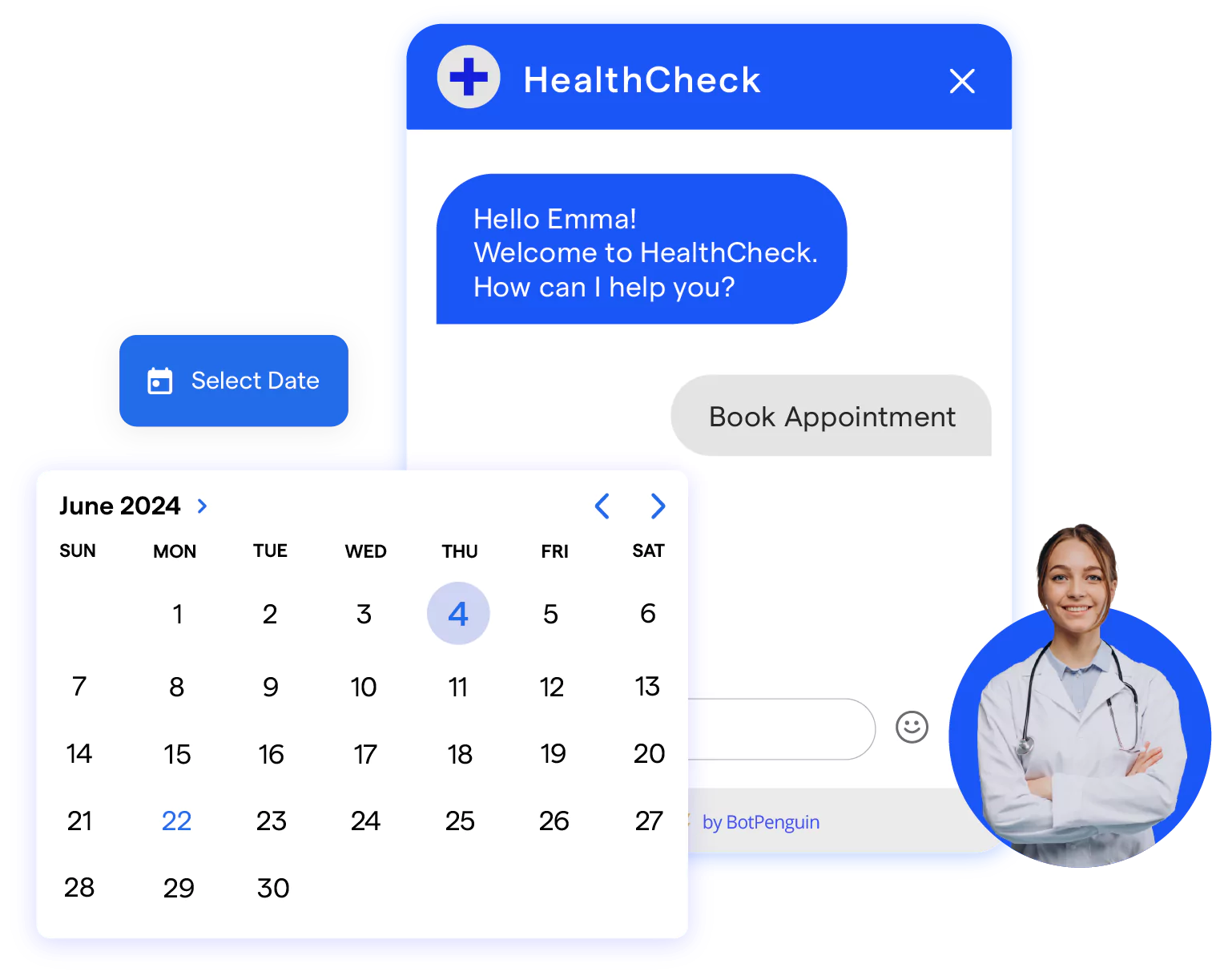
In 2024, chatbot for healthcare are transforming how patients interact with healthcare providers.
By offering 24/7 assistance, these AI-powered tools enhance patient communication, provide instant responses to common queries, and streamline appointment scheduling.
Chatbot in healthcare are now vital to improving efficiency and patient satisfaction, while also reducing administrative burdens for healthcare staff.
One standout example is Babylon Health, which uses an AI-driven chatbot to offer real-time health assessments.
Patients can describe their symptoms, and the chatbot provides potential diagnoses and next steps based on the user’s input.
This gives patients quicker access to relevant information and helps triage cases more effectively, ensuring that those who need urgent care are prioritized.
Leading chatbots like BotPenguin's GenAI-powered chatbot can truly transform healthcare marketing trends.
Why do Chatbot in Healthcare marketing matter?
Chatbots are one of the leading healthcare marketing trends because
- Enhances patient engagement by providing 24/7 support for common queries.
- Improves accessibility especially for patients who prefer virtual communication.
- Reduces administrative workload, freeing up staff for more critical tasks.
- Speeds up appointment scheduling and streamlines the patient journey.
- Provides instant health information, helping patients manage symptoms or plan next steps.
Telehealth Expansion
In 2024, telehealth continues to redefine healthcare accessibility and convenience.
What once seemed like a niche offering has now become a crucial part of the healthcare marketing trends landscape, driven by technological advancements and changing patient expectations.
With more patients opting for virtual consultations, healthcare providers are expanding their telehealth services to meet the growing demand.
A leading example is Kaiser Permanente, which has integrated telehealth as a core service. Patients can access specialists, receive follow-up care, and even manage chronic conditions without ever stepping into a clinic.
This has not only expanded healthcare access to rural areas but also reduced wait times and increased patient satisfaction.
Another trailblazer in this space is Mayo Clinic, which offers virtual consultations for patients worldwide.
Why does Telehealth Expansion matter in healthcare marketing trends?
Telehealth expansion is no longer just a response to immediate needs—it's a forward-thinking strategy that enhances healthcare marketing trends delivery as it
- Improves accessibility for patients in remote or underserved regions.
- Reduces wait times and streamlines the patient experience.
- Enhances convenience, allowing patients to receive care from the comfort of their homes.
- Increases healthcare efficiency, freeing up resources for more critical in-person care.
- Supports chronic care management, improving patient outcomes and reducing hospital visits.
Mobile Health Apps Empowering Patients On-the-Go
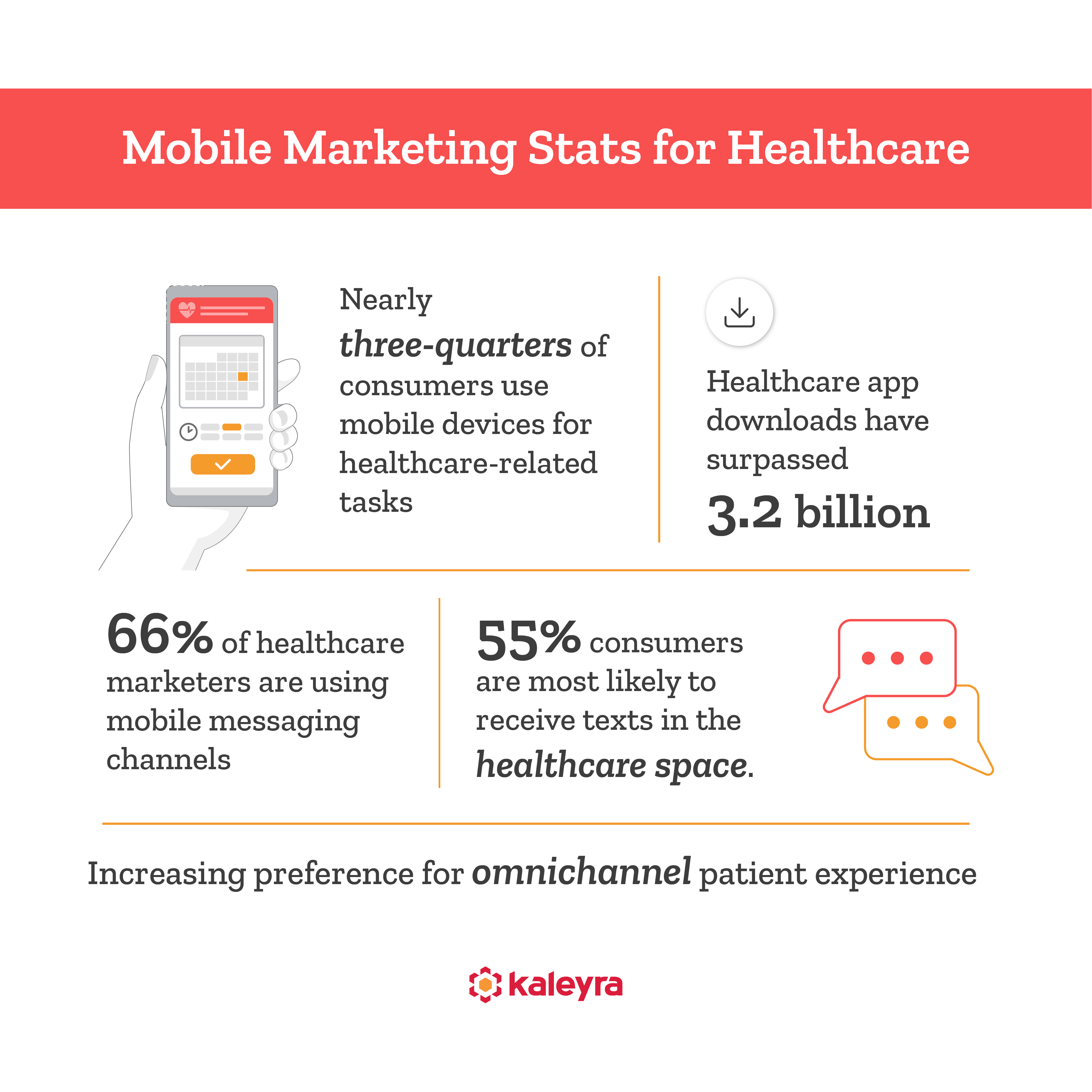
In 2024, mobile health apps are taking center stage in healthcare marketing trends by empowering patients to take control of their health wherever they are.
These apps provide users with access to personalized health data, medical advice, and appointment scheduling—all from the convenience of their smartphones. By enabling patients to manage their wellness on the go, mobile health apps are reshaping patient-provider interactions.
A leading example is MyChart, a mobile app used by Mayo Clinic and other major healthcare institutions.
Patients can access their medical records, schedule appointments, and even communicate directly with their healthcare providers. This convenience fosters a stronger connection between patients and their healthcare teams, making healthcare more accessible.
Another noteworthy example is Apple’s Health app, which integrates data from various health devices like fitness trackers and monitors.
This app allows users to monitor vital signs, track fitness goals, and share health data with doctors, improving both preventative care and treatment monitoring.
Suggested Reading:
9 Tips to Boost Your Healthcare Marketing with WhatsApp Chatbot
Why do Mobile Health Apps Matter in healthcare marketing trends?
Mobile Health Apps are one of the fastest-growing healthcare marketing trends because
- Empower patients by giving them easy access to health information and care.
- Enhance patient engagement, enabling users to track their health and stay proactive about their wellness.
- Improve communication between patients and healthcare providers through instant messaging and telehealth features.
- Boost preventive care by helping users monitor vital signs and health data in real time.
- Increase healthcare accessibility, as patients can access care anytime, anywhere.
AI-Powered Marketing in Healthcare Precision Targeting for Better Patient Engagement in India
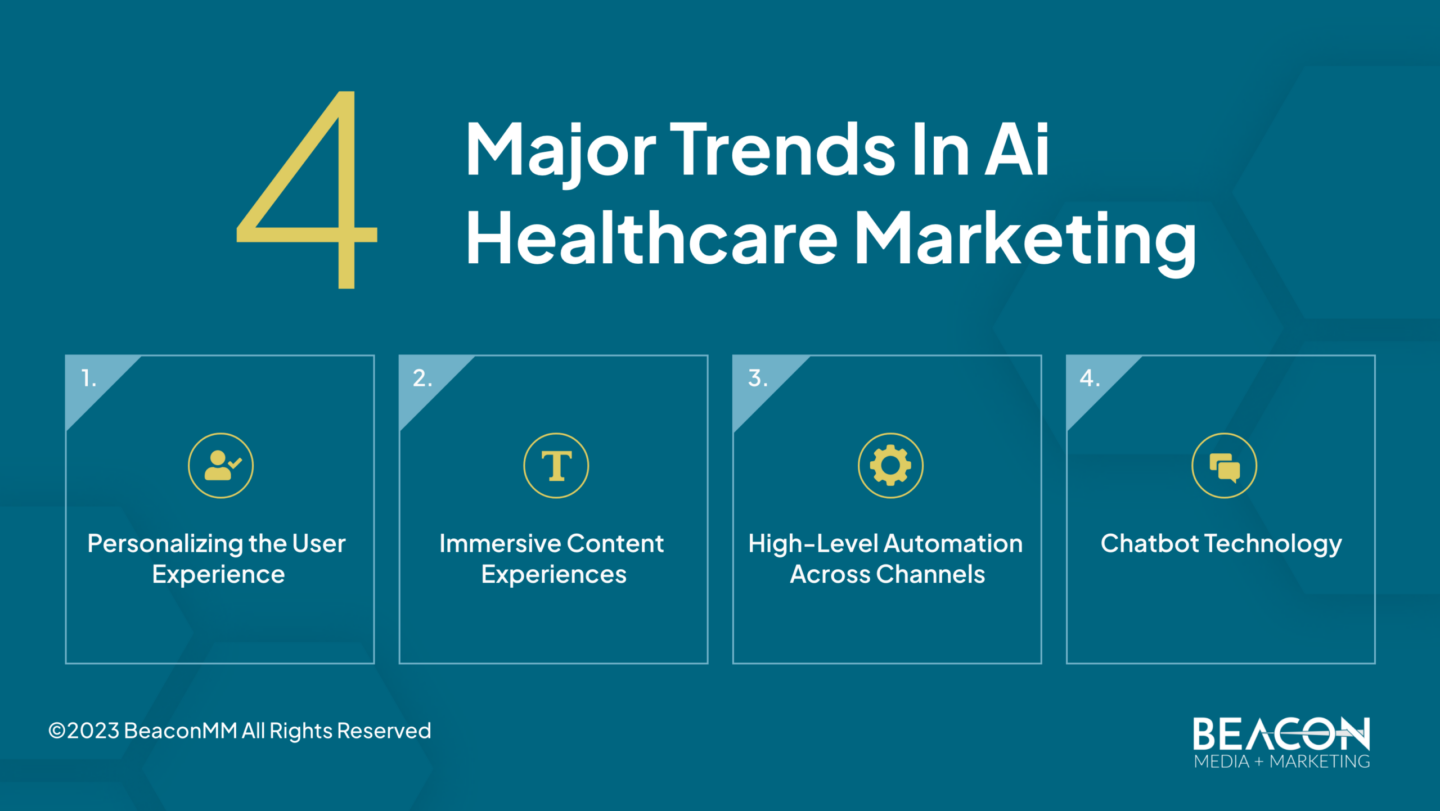
In 2024, AI-powered marketing is transforming how healthcare organizations in India engage with patients.
By analyzing patient data and behavior, AI tools allow healthcare marketers to create hyper-personalized campaigns that target the right audience at the right time, improving engagement and overall outcomes.
One notable example is Practo, a leading healthcare platform in India that uses AI to optimize patient outreach.
Practo analyzes user behaviour and preferences to tailor recommendations for doctors, treatments, and health tips, ensuring that patients receive relevant information when they need it.
This personalized approach not only enhances patient engagement but also drives traffic to healthcare providers.
Another example is Apollo Hospitals, which employs AI in its marketing strategies to segment patient demographics more effectively.
By leveraging patient data, Apollo creates targeted campaigns that resonate with specific groups, such as women’s health initiatives or senior care programs. This has resulted in higher patient response rates and increased bookings for specialized services.
Why AI-Powered Marketing Matters in Healthcare Marketing Trends?
AI-powered healthcare marketing trends are a must today as they
- Improves targeting, ensuring patients receive relevant and timely content based on their specific needs.
- Enhances patient engagement, with personalized communication that fosters loyalty and trust.
- Boosts campaign effectiveness, as AI analyzes data for better decision-making, leading to more successful outreach.
- Increases marketing efficiency, automating routine tasks and allowing healthcare marketers to focus on strategic initiatives.
- Strengthens patient relationships, as patients feel valued through tailored interactions that address their unique healthcare concerns.
Social Media as a Healthcare Marketing Trends Content Hub
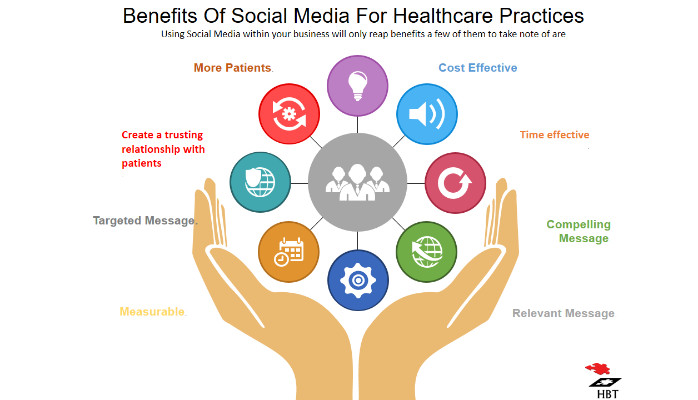
In 2024, social media is evolving into a vital platform for healthcare marketing trends content, enabling organizations to connect with patients and disseminate valuable health information.
With a significant portion of the population active on platforms like Facebook, Instagram, and Twitter, healthcare providers are harnessing these channels to engage with patients, share educational content, and build community trust.
One prominent example is Fortis Healthcare, which actively uses social media to raise awareness about health issues and promote healthy living.
Their campaigns often include expert-led discussions, informative infographics, and live Q&A sessions, creating an interactive platform where patients can engage directly with healthcare professionals.
Similarly, Apollo Hospitals utilizes platforms like Instagram and Facebook to share patient success stories, health tips, and updates on services.
By creating visually appealing and relatable content, they foster a sense of community and encourage patient interactions, making healthcare feel more accessible.
Suggested Reading:
Top Healthcare Marketing Tools for 2024
Why Social Media usage is important to healthcare marketing trends?
In this digital age, everyone is on social media and hence using social media in healthcare marketing trends can help in
- Enhances patient engagement, allowing for real-time interaction and feedback.
- Increases accessibility to health information, making it easier for patients to find and understand relevant content.
- Builds community trust, as patients see real experiences and expert advice shared by healthcare professionals.
- Facilitates health education, helping to dispel misinformation and promote evidence-based practices.
- Encourages patient advocacy, empowering individuals to take charge of their health and wellness journeys.
Omnichannel Marketing Strategies in Healthcare
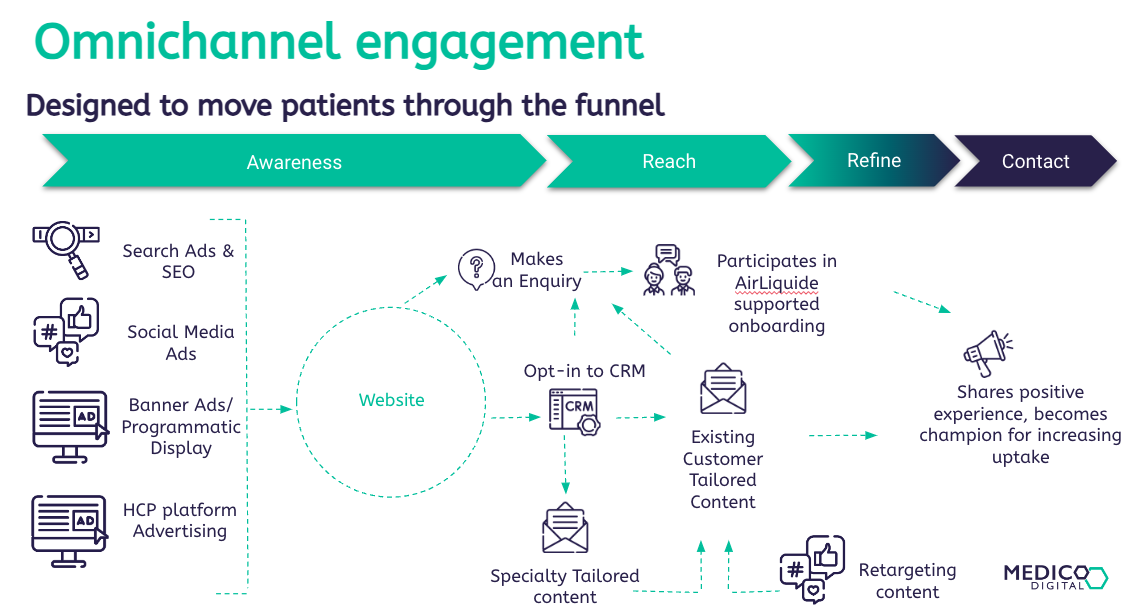
In 2024, omnichannel marketing strategies are essential for healthcare organizations aiming to provide a cohesive and personalized patient experience across multiple touchpoints.
This approach integrates various channels—such as social media, email, websites, and in-person interactions—ensuring that patients receive consistent messaging and support, no matter how they engage with the brand.
Healthcare providers like Max Healthcare are implementing omnichannel strategies to enhance patient communication.
By synchronizing their digital platforms and physical locations, they ensure that patients can access information, book appointments, and receive care seamlessly.
For instance, patients can start a consultation via a mobile app and continue the conversation in person, maintaining continuity in their healthcare journey.
Fortis Healthcare also exemplifies effective omnichannel marketing by leveraging patient data to tailor communications across channels.
Key Benefits of Omnichannel Marketing in Healthcare
The following are the benefits of omnichannel marketing in healthcare marketing trends
- Enhanced patient experience, with consistent messaging across all platforms.
- Increased engagement, as patients can choose their preferred communication channels.
- Improved data integration, allowing for better tracking of patient interactions and preferences.
- Higher patient satisfaction, leads to improved loyalty and retention rates.
- Streamlined operations, as teams can manage communications more efficiently.
Conclusion
In 2024, the landscape of healthcare marketing is undergoing a remarkable transformation, driven by innovative strategies that prioritize patient engagement and personalized experiences.
From harnessing the power of social media as a healthcare content hub to implementing effective omnichannel marketing strategies, healthcare providers are learning to speak directly to their patients in ways that resonate.
As we’ve explored, trends like AI-powered diagnostics, mobile health apps, and personalized patient experiences are not just buzzwords—they are vital components of a robust marketing approach that can lead to better health outcomes and increased patient loyalty.
Embracing these healthcare marketing trends means creating a more connected, informed, and empowered patient base, ultimately benefiting both healthcare providers and patients alike. So, as you navigate this dynamic landscape, remember that adaptability and creativity are your best allies.
By adapting to these top healthcare marketing trends, you can stay ahead of the curve and ride the wave of digital marketing in healthcare. If you are still skeptical, why not sign up for a free trial version of a top chatbot like BotPenguin and see the changes for yourself?
That's all from us, all the best!
Frequently Asked Questions (FAQs)
What are the key healthcare marketing trends to watch in 2024?
In 2024, focus on personalized patient experiences, telehealth expansion, omnichannel strategies, ethical marketing, AI-driven services, and the use of healthcare chatbots to enhance patient engagement and streamline communication.
How is AI transforming healthcare marketing trends?
AI is revolutionizing marketing in healthcare by enabling personalized content, automating responses with chatbots in healthcare, analyzing patient data, and optimizing digital campaigns for better targeting and engagement.
Why is omnichannel marketing important in healthcare marketing trends?
Omnichannel marketing ensures a seamless patient experience across multiple platforms, enhancing engagement and building trust by providing consistent communication, whether online, via healthcare chatbots, or in-person interactions.
How do healthcare marketing trends chatbots improve patient engagement?
Healthcare chatbots provide instant support, answer common questions, and guide patients through processes like appointment scheduling, improving accessibility and patient satisfaction while reducing wait times.
What role does ethical marketing play in healthcare marketing trends?
Ethical marketing focuses on transparency and honesty, which are crucial in healthcare marketing to build patient trust, ensuring that all communications are clear, and accurate, and prioritising patient well-being.
How are mobile health apps impacting healthcare marketing trends?
Mobile health apps are becoming vital in digital marketing for healthcare, offering patients easy access to health information, appointment scheduling, and personalized care, thus enhancing engagement and improving overall patient experiences.



